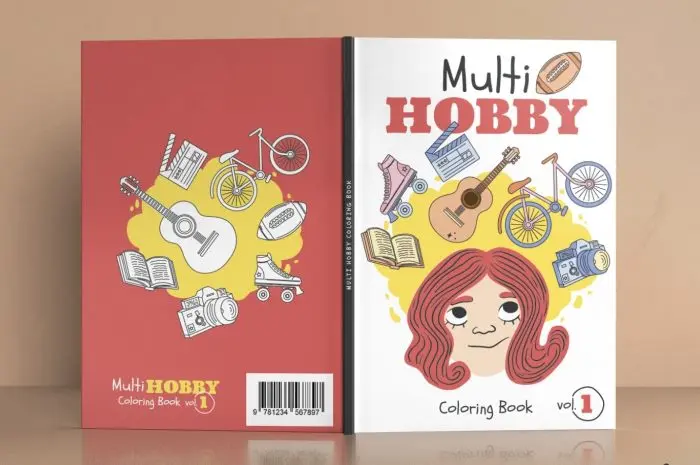The Hobbyist’s Handbook, Exploring New Pastimes
In a world where the hustle of everyday life can be overwhelming, hobbies offer a much-needed escape. They provide a sense of fulfillment, an opportunity for personal growth, and a break from the monotony of routine.
This article, “The Hobbyist’s Handbook,” invites readers to explore the joy of discovering new pastimes and the myriad benefits they bring.
The Value of Hobbies
Hobbies are more than leisure activities; they are vehicles for self-expression, creativity, and relaxation. Engaging in hobbies can improve mental health, reduce stress, and enhance life satisfaction. They offer a unique blend of challenge and enjoyment, fostering a sense of achievement and personal development.
Tips for Exploring New Hobbies
- Assess Your Interests: Reflect on what excites you. Your new hobby should be something that intrigues and motivates you.
- Start Small: Begin with small, manageable projects or sessions. This approach helps in maintaining interest without feeling overwhelmed.
- Research: Utilize resources like books, online tutorials, and community classes to learn more about potential hobbies.
- Connect with Communities: Join online forums, social media groups, or local clubs related to your hobby. These communities offer support, advice, and camaraderie.
- Be Patient: Developing a new skill takes time. Patience is key to enjoying the learning process.
- Experiment: Don’t hesitate to try out different hobbies. Experimentation is part of the discovery process.
Popular Hobbies to Consider
- Gardening: Offers a connection with nature and the satisfaction of nurturing plants.
- Photography: A creative outlet that captures moments and perspectives.
- Cooking/Baking: Provides a delicious way to be creative and experimental.
- Writing: From journaling to storytelling, writing is a cathartic and expressive hobby.
- Crafting: Activities like knitting, woodworking, or DIY projects allow for tangible creative expressions.
- Learning a New Language: Opens up new cultures and enhances cognitive skills.
- Playing a Musical Instrument: Combines the joy of music with the challenge of learning new skills.
The Mental Health Benefits of Hobbies
Engaging in hobbies has been linked to numerous mental health benefits, including reduced stress and anxiety, improved mood, and increased feelings of happiness.
Hobbies provide a sense of escape, allowing individuals to step away from daily stresses and engage in activities that bring joy.
Balancing Hobbies with Daily Life
While exploring new hobbies, it’s important to maintain a balance with other life responsibilities. Setting aside specific times for hobbies can ensure that they complement rather than complicate your daily routine.
Hobbies for Personal Growth
Many hobbies contribute to personal growth by challenging individuals to learn new skills, solve problems, and think creatively. This growth often translates to increased confidence and a sense of accomplishment.
The Social Aspect of Hobbies
Hobbies can also have a social component, whether it’s joining a club, attending workshops, or simply sharing your creations with others. They provide opportunities to connect with like-minded individuals and build new friendships.
The Joy of Continuous Learning
A key aspect of hobbies is the joy of learning. Whether you’re perfecting a craft or starting from scratch, the continuous learning process is both stimulating and rewarding.
Hobbies in the Digital Age
The digital age has opened up new avenues for hobbyists. From digital art and coding to online gaming and blogging, technology offers a wide range of new and accessible hobbies.
The Role of Hobbies in Stress Management
Hobbies can be effective tools for stress management. Engaging in activities you enjoy can divert your mind from stressors and help you relax.
Overcoming Challenges in New Hobbies
New hobbies can sometimes be frustrating, especially when progress seems slow. Overcoming these challenges involves setting realistic goals, being patient with yourself, and remembering that the journey is as important as the destination.
The Financial Aspect of Hobbies
While some hobbies can be costly, many are low-cost or even free. Budget-friendly hobbies include hiking, drawing, or upcycling. It’s important to choose a hobby that fits within your financial means.
Conclusion
Exploring new hobbies is a journey of discovery, offering a world of creativity, learning, and relaxation. Whether you’re looking for a creative outlet, a way to de-stress, or an opportunity to connect with others, there’s a hobby out there for you.
Remember, the goal of a hobby is not to become a master, but to enrich your life and bring you joy. So, dive into the Hobbyist’s Handbook, explore your interests, and embrace the fulfilling world of hobbies.



